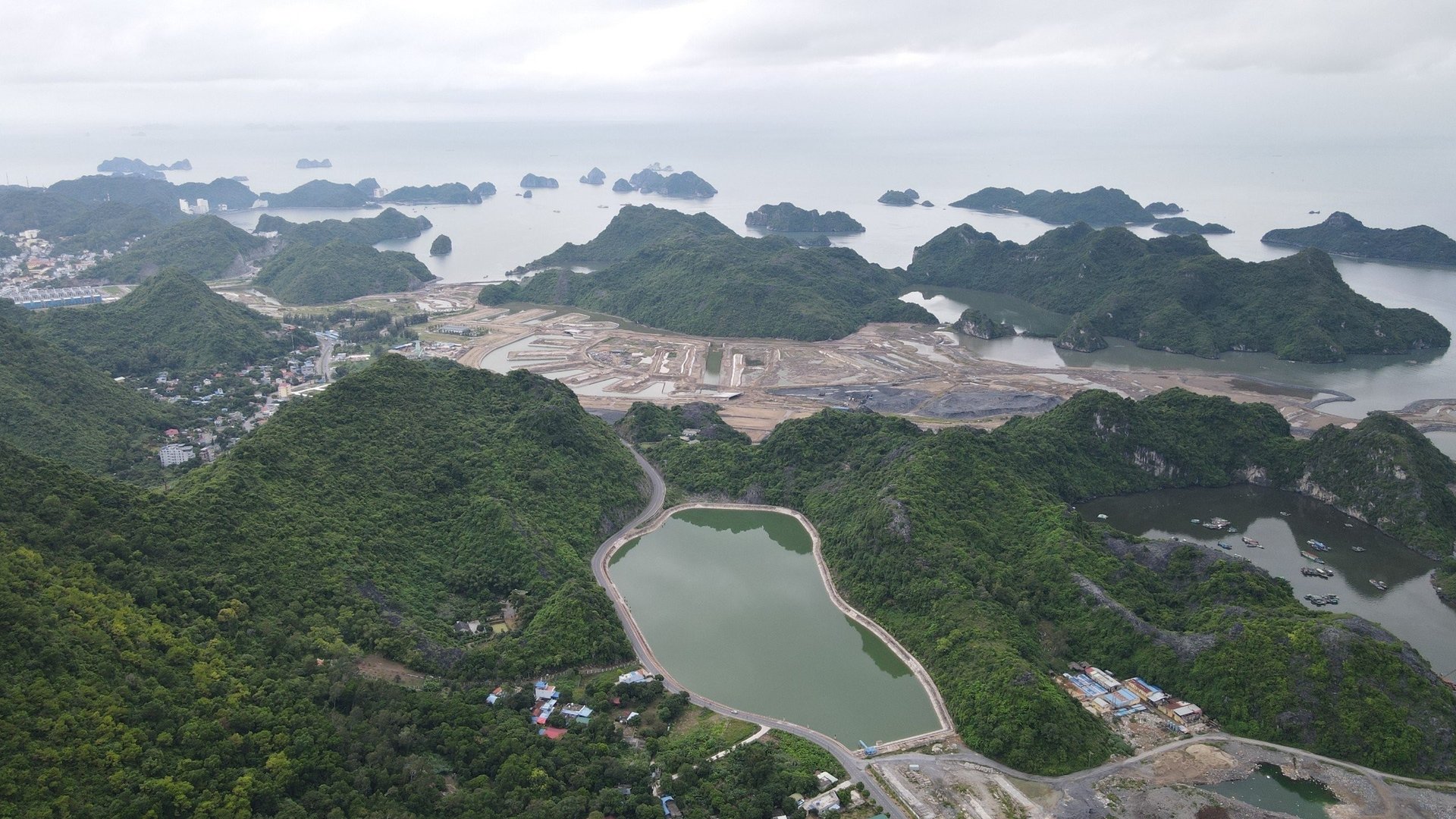June 15, 2025 | 04:09 GMT +7
June 15, 2025 | 04:09 GMT +7
Hotline: 0913.378.918
June 15, 2025 | 04:09 GMT +7
Hotline: 0913.378.918
The impacts of environmental challenges, particularly climate change, water and land management, biodiversity and the growing demand for biomass, are increasingly vivid. However, the “real” challenge is to enhance agriculture's ability to achieve green growth goals rather than hinder them.
Climate change poses challenges in terms of reducing greenhouse gas emissions as well as adapting to climate impacts which are expected to leave a deep mark on the global agricultural sector. It also offers opportunities for agriculture to enhance carbon sequestration capacity and offset emissions from other sectors. Complex combinations and trade-offs are at play as agricultural producers strive to reduce carbon emissions while remaining competitive in the market.

Forest conservation and development is a sustainable solution to adapt to climate change. Photo: VAN.
Agriculture accounts for 10 - 12% of global greenhouse gas emissions, mainly nitrogen oxides and methane. Nitrous oxide is emitted from agricultural activities and accounts for 60% of all agricultural emissions. Rice cultivation and livestock farming both emit large amounts of methane, accounting for 30%.
Agriculture's climate footprint is growing as it expands to produce more food for the world's growing population. Policies aimed at reducing agricultural emissions could be more cost-effective than some industrial and transportation options. Improved crop and grazing land management, changing tillage methods, reducing fertilizer use and restoring degraded soils will prove promising in the process of reducing nitrogen oxide emissions.
Methane emissions from livestock can be lowered through advances in genetics and improved nutrient management. As for carbon emissions, the agricultural industry can switch to low-energy technology and on-farm renewable energy production. Energy efficiency can also be achieved during the processing, transportation and distribution of food products throughout the supply chain.
Climate change will require greater attention to water conservation measures in terms of on-farm irrigation, distribution systems, and larger infrastructure systems that supply water to farms. In developed and developing countries, adaptation also involves expanding risk management approaches to include climate change, strengthening crop and disaster insurance, improving training and education as well as further developing agricultural extension and communication systems.
Agriculture at present faces the challenge of increasing food production while using less water due to pressures from climate change as well as urbanization and industrialization. With demands for food and water both increasing, farmers need to use water more efficiently, which calls for better water management. A combination of policy instruments is needed - market-based instruments, water quotas and other incentives.
Regulations and permits are the main policy tools to ensure sustainable management of on-farm water resources, primarily groundwater. However, poor enforcement of these rules often leads to illegal pumping and degradation of groundwater. To reduce water stress, enforcement of existing management measures and the development of volumetric management and charging mechanisms become essential.
Farmers need to implement the best methods to improve the efficiency of irrigation and other end uses, along with more sustainable water harvesting. Tools are being developed to enable better water monitoring, including connecting soil moisture monitoring devices to drip irrigation systems.
The assignment of property rights and responsibilities associated with water use and supply is a necessary condition for implementing market-based measures. The exchange of water rights or the trading of water access can encourage more efficient use of water resources.
As a sector occupying 37% of land use (68% if forest land is included), agriculture can contribute significantly to the protection of ecosystems and habitats as well as the provision of other ecological services on land with appropriate land management methods. On the other hand, increased conversion of land purposes to crop production and livestock farming may have adverse impacts on environmental resources and ecosystems.
Rising populations and incomes are driving demand for agricultural land. In recent decades, land conversion to crop production and livestock farming has had major adverse impacts on natural forests, animal habitats and other important ecosystems. In the case of forest land, failures to align economic and environmental goals have led to continued land loss and degradation.

Forest protection and economic development are always a complicated matter for developing countries. Photo: VAN.
Because of the growing demand for food, land resources are under pressure to maintain or increase agricultural productivity. This has led to long-term land degradation through erosion, pollution and physical and chemical degradation.
Maintaining and improving soil quality is a high priority area for implementing green growth in the agricultural sector. This depends on integrated land management practices including proper tillage, crop rotation, using fewer chemical inputs and careful selection of seed varieties. Techniques to improve soil fertility can provide economic benefits by increasing agricultural productivity and environmental benefits by enhancing biodiversity.
Nonetheless, land management methods must be tailored to specific areas and ecosystems. Effective implementation of land management strategies also depends on the comprehensive cooperation of land users and local communities.
Translated by Samuel Pham
/2025/06/12/3721-2-202745_83.jpg)
(VAN) TH made an impression at Seoul Food 2025 with its line of natural beverages, paving the way for Vietnamese food products to enter the South Korean market.

(VAN) Soc Trang's success in rice exports stems from a strategy of developing fragrant and specialty rice cultivation areas and standardizing production toward low-emission practices.
/2025/06/11/1311-5-120811_839.jpg)
(VAN) The pig farming industry is facing the challenge of comprehensive restructuring to meet requirements for quality, safety, traceability, and market expansion both domestically and for export.

(VAN) Vietnam considers participating in ALGROALBA in order to expand agricultural production, coordinate the assessment and effective exploitation potential land.
/2025/06/05/5314-1-184727_407.jpg)
(VAN) From seemingly worthless fish scales and skin, enzymes and lactic ferments can transform by-products into peptides, opening a sustainable, effective business direction and elevating Vietnamese seafood.

(VAN) TTC AgriS and IFC signed a strategic partnership to develop a sustainable agricultural value chain, aiming to achieve the Net Zero target by 2035.

(VAN) Seafood by-products are opening a new path, combining green growth and technological innovation to enhance the industry's value.